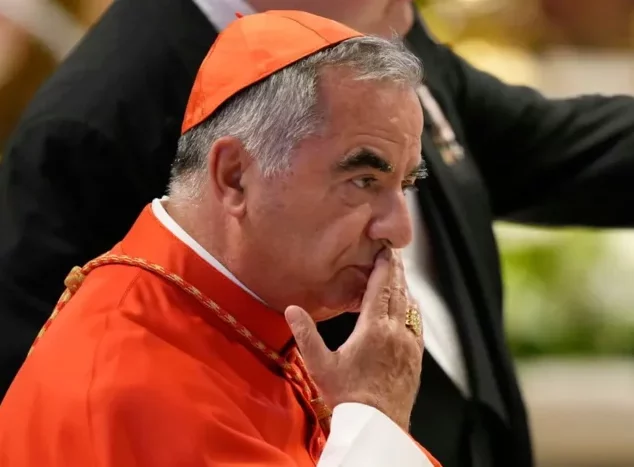As Pope Leo XIV approaches his first month in office, his initial appointments and private audiences offer early insights into the priorities that will shape his pontificate.
Newsroom (27/05/2025 12:24, Gaudium Press) While much remains uncertain, Pope Leo XIV early actions suggest a blend of continuity with the unfinished work of Pope Francis, a commitment to addressing deep-seated crises in the Church, and a cautious but deliberate approach to reconciliation within the College of Cardinals.
Addressing Scandal and Seeking Healing
One of the most striking moments of Leo’s papacy was his May 27 private meeting with Cardinal Angelo Becciu, the disgraced former Vatican official convicted in 2023 of financial crimes related to the disastrous London property scandal. Becciu, barred by Pope Francis from participating in the conclave, remains a polarizing figure—some cardinals reportedly viewed his treatment as unjust, while others saw his conviction as a necessary step toward Vatican accountability.

The Abuse Crisis: A Defining Priority
His May 22 meeting with Sister Simona Brambilla, who signed the SCV’s suppression decree, further reinforces this focus. Meanwhile, his two private meetings with Cardinal Víctor Fernández, prefect of the Dicastery for the Doctrine of the Faith, likely included discussions on the unresolved case of Fr. Marko Rupnik, whose alleged abuses continue to haunt the Church.
Financial Reform and Curial Overhaul
Another key concern is the Vatican’s financial stability. Pope Leo’s early meeting with Archbishop Giordano Piccinotti, head of APSA (the Vatican’s central financial office), signals his intent to continue the financial reforms begun under Francis. The London property scandal, which cost the Vatican hundreds of millions, remains a cautionary tale—one that Leo seems determined not to repeat.
His engagement with the Dicastery for Integral Human Development—including a second meeting with Sister Alessandra Smerilli, a possible future prefect—hints at potential leadership changes. Yet, true to his stated approach, Leo appears to be taking time to assess before making major personnel decisions.
Unfinished Business: Opus Dei and the Synod
Pope Leo’s meeting with Msgr. Fernando Ocáriz, head of Opus Dei, suggests he intends to finalize the long-pending reform of the group’s statutes—another task inherited from Francis. Similarly, his engagement with officials overseeing the 2025 Jubilee of Hope indicates that major pastoral events remain on track.
A Pontificate of Pragmatism and Pastoral Focus
While it is too early to define Pope Leo’s legacy, his early moves reveal a pragmatic, problem-solving approach. He is not breaking sharply from Francis’s agenda but is instead prioritizing its unresolved elements: abuse accountability, financial transparency, and Curial reform. At the same time, his gestures toward figures like Sarah and Becciu suggest a pastoral desire to heal divisions within the Church’s leadership.
What remains to be seen is whether this measured, consultative style will translate into bold action—particularly on the abuse crisis, where the faithful demand more than words. For now, Pope Leo XIV appears to be a pope who listens first, acts deliberately, and seeks to mend what is broken. The coming months will reveal whether that approach can restore trust and bring renewal to a Church still grappling with its deepest wounds.
- Raju Hasmukh with files from Crux Now



